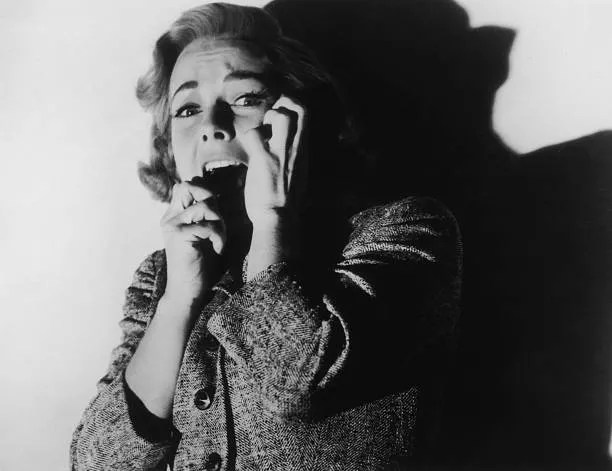
Archives/Getty

Audio By Carbonatix
This weekend, Denzel Washington and Rami Malek will be combining their wits as they hunt down a serial killer (Jared Leto) in the new HBO Max thriller The Little Things. Hollywood has often been attracted to the allure of serial killers, as villains with even the slightest bit of plausibility are often more terrifying than supernatural creations. The influx of docudramas and miniseries based on deranged killers only confirms our sick fascination with them.
The palette of serial killer films is diverse, ranging from mystery-based to definitive horror films. The Little Things is pure fiction, but Hollywood tends to fudge the facts when it comes to true crime. Some of the most famous movie killers in history are inspired (to varying degrees) by real atrocities. It’s easy to get confused, so we took a look back and fact checked the greatest serial killer movies ever made.
Silence of the Lambs (1991)
There have been many adaptations of the Hannibal Lecter story at this point, including Michael Mann’s highly underrated 1986 neo-noir Manhunter, but Silence of the Lambs is the most ruthless and compelling of them all. Celebrating its 30th anniversary this year, the Anthony Hopkins-Jodie Foster classic remains the only horror film to ever win the Academy Award for Best Picture.
Fact or fiction? The complex Hannibal mythology is largely based on the imagination of author Thomas Harris, but some aspects are inspired by the case of physician-turned-death-row-inmate Alfredo Ballí Treviño.
Zodiac (2007)
There’s no better auteur of serial killer media than director David Fincher, whose filmography also includes Se7en, The Girl With The Dragon Tattoo, Fight Club, Gone Girl and the Netflix series Mindhunter. Zodiac explores not only the chilling nature of killers, but how the mystery of unsolved crimes can inspire obsession amongst investigators.
Fact or fiction? Fincher grew his own obsession over replicating the facts of the case and interviewing real participants and victims, with any conclusions regarding the killer’s identity left as open as the real case.
Se7en (1995)
We couldn’t resist doubling up on Fincher, and for good reason, as the shocking twist ending of Se7en is no less chilling after 25 years of parodies.
Fact or fiction? Thankfully, the story of a serial killer inspired by the seven deadly sins is pure fiction.
Badlands (1973)
Texas filmmaker Terrence Malick is known for his meditative arthouse films, and his debut film Badlands follows a killing spree by greaser Kit (Martin Sheen) and teenager Holly (Sissy Spacek). Consider this neo-noir to be the perfect companion piece to Bonnie and Clyde.
Fact or fiction? Badlands is loosely inspired by the killings by Charles Starkweather and Caril Ann Fugate in 1958, which also inspired Bruce Springsteen’s famous song “Nebraska” and is referenced in Billy Joel’s “We Didn’t Start The Fire” with the line “Starkweather homicide.”
American Psycho (2000)
Christian Bale is now known as one of the best and most daring actors of his generation, but his performance as the serial killer Patrick Bateman in the satire American Psycho shocked audiences who only knew him as the little boy from Empire of the Sun. Interestingly enough, Bale was nearly replaced in the role by Leonardo DiCaprio.
Fact or fiction? This one is all fiction, based on the novel by Brett Easton Ellis.
The Texas Chain Saw Massacre (1974)
One of the most controversial films ever made, The Texas Chain Saw Massacre prompted some ill-inspired sequels, prequels and reimaginings, but Tobe Hooper’s original classic remains some of the most chilling 83 minutes ever committed to screen and is responsible for many aspects of the slasher genre.
Fact or fiction? While some of the early controversies surrounding the film stemmed from the fact that it was marketed as being based on a true story, the connections to real serial killer Ed Gein are slim and only used as a promotional tool and bit of satire from Hooper.
M (1931)
This provocative work of German expressionism shocked audiences at the time, with a plot revolving around a serial killer of children (played by the incredible Peter Lorre) who is targeted by both the police and the mafia. This is the predicator to today’s procedural movies and shows.
Fact or fiction? Connections have been drawn between the film and the 1920s German killer Peter Kürten, but filmmaker Fritz Lang has denied this.
The Night of the Hunter (1955)
Director Charles Laughton famously quit making films after the negative response to The Night of the Hunter, but the film is now considered to be a classic and a major influence on filmmakers such as the Coen Brothers and David Lynch.
Fact or fiction? The plot for the film, like the 1953 novel that it’s based on, is directly lifted from the real killings by Southern minister Harry Powers.
Psycho (1960)
Is there a more iconic cinematic killer than Norman Bates? Psycho‘s subversive storyline, which features the killing of its lead character halfway through the story, is one of the greatest examples of Alfred Hitchcock’s genius. At the time of the film’s release, audiences were not allowed admittance to the film’s showings after it began and were explicitly told not to discuss the ending.
Fact or fiction? Hitchcock researched various real serial killers, including Ed Gein and Calvin Beck, but the concept of the “boy next door” style slasher is mostly a creative imagining.
Halloween (1978)
Some iconic horror films have grown irrelevant because of endless sequels, parodies and the changing of audience sensibilities. The original Halloween isn’t one of them; John Carpenter’s 1978 masterpiece remains just as traumatizing and enthralling as it did during its original release. Although it wasn’t the first slasher film, it’s more or less the blueprint for the genre.
Fact or fiction? An encounter with mental patients during a college seminar helped John Carpenter solidify some of the details of Michael Myers, but the character himself is a work of fiction.